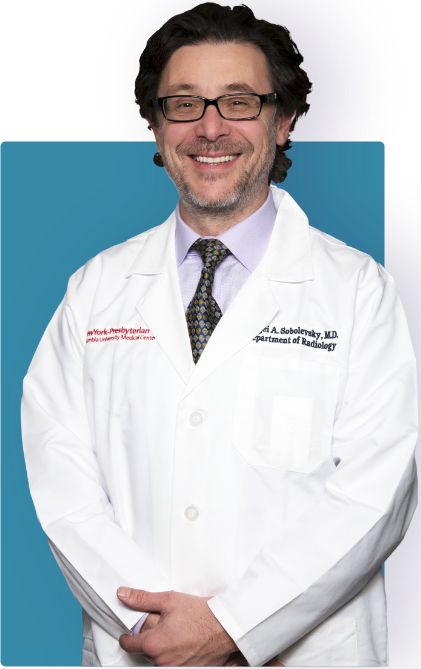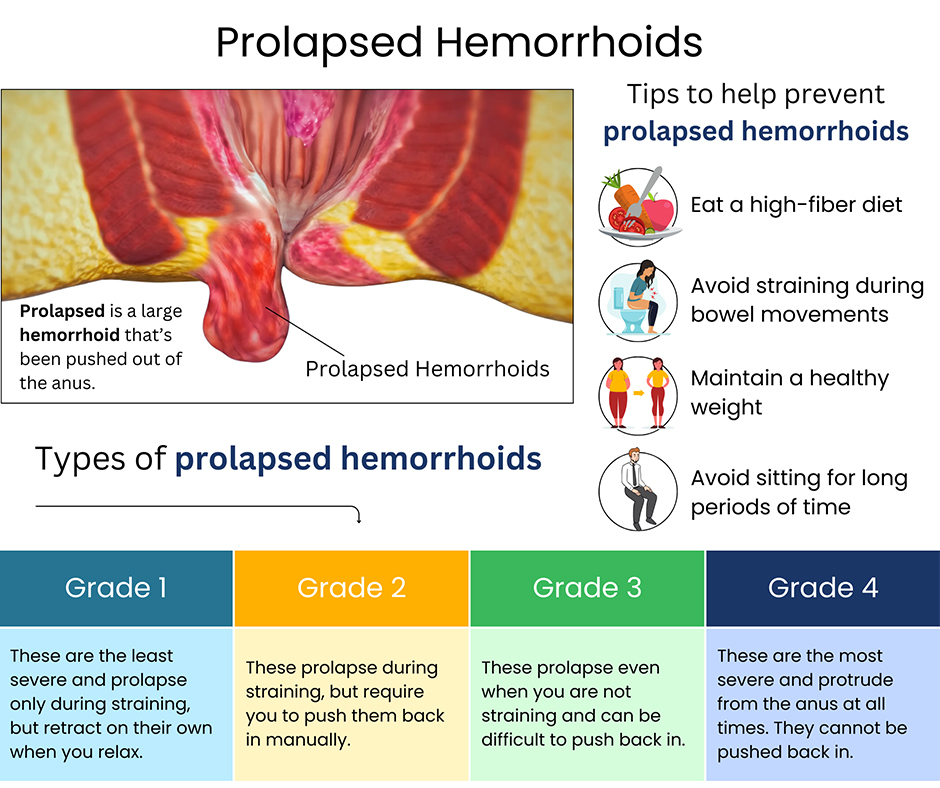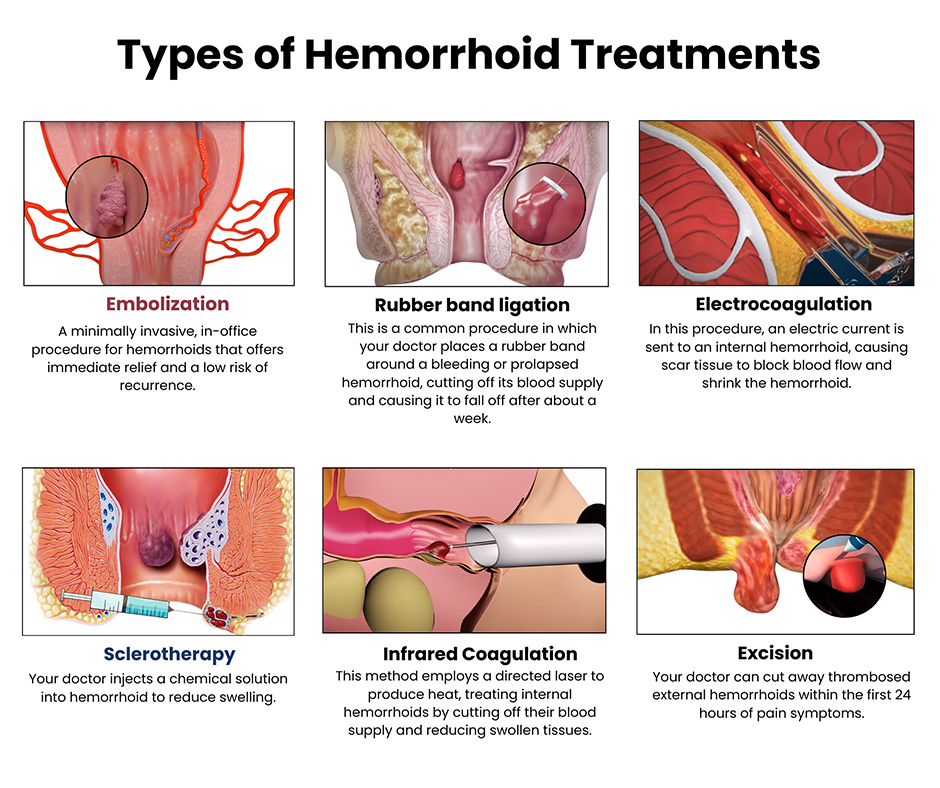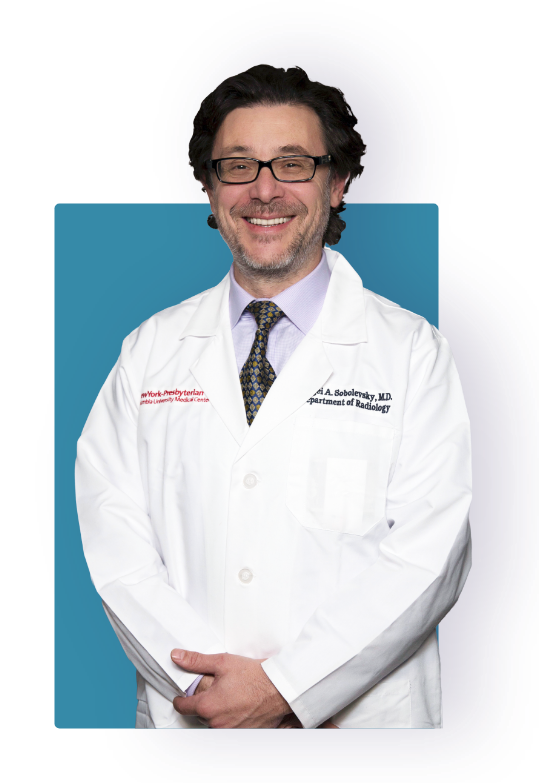Hemorrhoids are bothersome lumps that appear first as itchy, scratchy irritations around your anus. The longer they go untreated, the bigger they get. Eventually, they start bleeding and multiplying. An irritated hemorrhoid may resemble a gummy bear gone bad. While you may be tempted to try over-the-counter relief, first get a diagnosis from an expert like Dr. Sergei Sobolevsky at the Downtown Vein & Vascular Center in Brooklyn, NY. Dr. Sobolevsky can tell you if you have hemorrhoids, if it’s safe to treat them at home, or if you need his expert medical intervention — including advanced treatments like hemorrhoid embolization. Call before they look and feel worse.
What Are Hemorrhoids?
Hemorrhoids are veins in the lower rectum and anus that, when irritated, become puffed up like little pillows. They’re sometimes referred to as piles because they look like little piles of lumpy reddish dough.
There are two basic types of hemorrhoids: 
- Internal, which forms inside your rectum or rectal canal
- External, which develops under the skin around the outside of your anus
While you can’t see internal hemorrhoids, they can be painful. You may not even realize you have internal hemorrhoids if you haven’t had them in the past. If you’re experiencing pain or bleeding in or around your anus, rely on Dr. Sergei Sobolevsky at the Downtown Vein & Vascular Center in Brooklyn, NYC. Only a doctor can diagnose and treat internal hemorrhoids. Dr. Sobolevsky has the expertise and technology to relieve the pain and discomfort that accompanies hemorrhoids, offering advanced treatments like hemorrhoid embolization for long-lasting relief.
What Do Hemorrhoids Look Like?
 Since it’s difficult to see the area around your own anus, rely on your doctor to look at it for the most accurate diagnosis. But if you bend over and use a small hand-held mirror, you may recognize hemorrhoids as red or purplish bumps.
Since it’s difficult to see the area around your own anus, rely on your doctor to look at it for the most accurate diagnosis. But if you bend over and use a small hand-held mirror, you may recognize hemorrhoids as red or purplish bumps.
These bumps often have characteristics that include:
- Mucus coverings
- Bloody secretions
- A cluster of soft lumps
- A hard, protruding lump sticking out of your anus
You can’t see an internal hemorrhoid, and they don’t usually cause pain until they get much worse.
Signs that you may have internal hemorrhoids include:
- Noticing blood in your stool or in the bowl after using the toilet
- Feeling irritation and pain if the hemorrhoids protrude to the point that you can see them
Best Hemorrhoid Doctor Near Me: Find Relief from Hemorrhoids Naturally at Downtown Vein & Vascular
Choosing a qualified hemorrhoid specialist is essential for effective treatment of discomfort, pain, or bleeding in the rectal area. Our hemorrhoid doctors have the expertise to accurately diagnose hemorrhoids and recommend appropriate treatments based on each patient’s individual needs. They can offer both non-invasive and surgical solutions tailored to provide relief and promote a quicker recovery. If you are experiencing hemorrhoid symptoms, seek treatment from a qualified specialist to receive the best possible care.
How To Find a Doctor Offering Hemorrhoid Treatment Near Me
To find the best hemorrhoid doctor near you, you can follow these steps:
- Consult your healthcare provider, friends, and family for recommendations.
- Search online for “best hemorrhoid doctors near me,” “hemorrhoid treatment near me,” or “hemorrhoid specialist near me.”
- Read online reviews of nearby hemorrhoid doctors. This can provide you with a sense of each physician’s qualifications, skills, and bedside manner.
- Once you’ve found a number of providers, give each doctor a call to find out more about their education, background, and approach to care. You can also ask about their insurance coverage and fees.
Our downtown location offers convenient access to expert hemorrhoid treatment. With a focus on minimally invasive procedures and a patient-centered approach, our hemorrhoid doctors are dedicated to helping you find relief in the most effective and natural way.
What if I Can’t See My Hemorrhoids?
Most of the time, you feel the discomfort of this anal inflammation before you see it.

While you may notice small dabs of blood on toilet tissue after you wipe, feelings you may experience may include:
- Irritation and itching around your anus
- Pain when you go to the bathroom and eventually all the time
- Swelling around the outside of the anus
- Discomfort when sitting
Most hemorrhoids are mildly uncomfortable at worst. You need a professional diagnosis, however, because your symptoms may be an indication of another, more serious condition like cancer.
Left untreated, hemorrhoids can lead to more complications, such as:
- Infections
- Restricted blood flow, resulting in blood clots
- Anemia due to excessive internal bleeding
- Severe pain
Symptoms vary, depending on the type of hemorrhoids you’re experiencing.
The four most common types of hemorrhoids and their symptoms include:
- Internal-external, a combination of the two components, are known to cause the most common signs like bleeding and pain.
- Prolapsed is a large hemorrhoid that’s been pushed out of the anus.
- Strangulated is a hemorrhoid that’s outside the anus with no blood supply but is extremely painful, especially when you go to the bathroom and when you’re walking.
- Thrombosed hemorrhoids appear when there’s a blood clot. They’re usually painful.

What Causes Hemorrhoids?
The connective tissue surrounding the veins in your rectum and anus weaken for a variety of reasons. When this happens, it causes swelling and bulging.
The common causes of weakening tissue include:
- Genetics
- Age
- Pregnancy, especially if you develop constipation
- Straining to push out a baby
- Constantly straining to have bowel movements
- Chronic diarrhea or constipation
- Obesity
Hemorrhoids are relatively common. Experts report that about 50 percent of the U.S. population suffers from inflamed anal veins at least once in their lives.
But you’re more likely to develop hemorrhoids if you have certain risk factors, such as:
- Being between the ages of 45 and 65
- Doing a lot of straining and heavy lifting on your job
- Having a family history of the condition
- Sitting for long periods of time on the toilet
Do I Need Treatment for Hemorrhoids?
Distended veins in the anus or rectum are called hemorrhoids or piles. You’ll notice feelings of pain, itching, and bleeding when they become swollen and enlarged. Inflammation can happen internally or externally. Mild cases of hemorrhoids may clear up in a week or so without any treatment, but if your symptoms worsen, you need medical intervention.
★ ★ ★ ★ ★
Highly Recommended!
Dr. Sobolevsky is an outstanding doctor. He is very professional, knowledgeable, experienced, and highly skilled. I will definitely recommend him to all of my friends and family if any of them have issues with their veins.
What Hemorrhoid Treatment Should I Try at Home?
When symptoms of hemorrhoids start, your doctor may recommend a few at-home suggestions to bring relief. Avoid straining during bowel movements, and don’t sit on the commode for long periods of time.
Call your doctor first, and after he checks you out, he may recommend:
- Ice. Use ice packs on the area to reduce pain.
- Cleanliness. Clean and pat dry with wet wipes after bowel movements, or use a bidet.
- Prevent constipation. Take fiber supplements or a stool softener to prevent constipation. Drinking plenty of water helps, too.
- Sitz bath. Try a sitz bath — soaking in shallow water with Epsom salts — for about 10 minutes two or three times a day.
- Exercise. Stay physically active to reduce pressure on your anal veins.
Over-the-counter ointments and creams are available to treat hemorrhoids and may provide some relief. These remedies usually contain witch hazel, an anesthetic, or hydrocortisone. Over-the-counter pain relievers such as aspirin, acetaminophen, or ibuprofen relieve minor discomfort.

How Do I Know I Need to See a Doctor for Hemorrhoids?
It’s always best to see your doctor before trying any home remedies because OTC medications may interact with other treatments, or you may have something else going on entirely. For example, bleeding before, during, or after bowel movements can be a sign of hemorrhoids, but it may also be a symptom of something more serious.
Signs that you should see a doctor include:
- Severe rectal bleeding and pain
- Fever
- Chills
- Nausea and vomiting
- Abdominal pain
Don’t use medications containing hydrocortisone for more than a week without consulting a doctor, and search for hemorrhoid specialist near you right away if you develop a rash. If you’ve had persistent discomfort, pain, or itching for more than seven days and your symptoms are worsening, consult Dr. Sobolevsky. You should also see him right away if you feel a lump in the anus.
What Can My Doctor Do for Hemorrhoids?
Hemorrhoids can be either external or internal. External hemorrhoids are visible from outside the body, while internal hemorrhoids usually aren’t, except when they prolapse, which means internal hemorrhoid extends beyond the anus.
Once diagnosed, your doctor may refer you to your local drug store for over-the-counter remedies to relieve your symptoms.
To be effective, though, these at-home treatments must be accompanied by certain lifestyle changes, such as:
- Losing weight
- Eating more fiber
- Restricting the amount of time you spend on the toilet
If at-home treatments don’t work within a week or 10 days, your doctor may advise you to undergo a minimally invasive treatment.
Types of treatment your doctor can do in the office include:
- Rubber band ligation. This is a common procedure in which your doctor places a rubber band around a bleeding or prolapsed hemorrhoid, cutting off its blood supply and causing it to fall off after about a week.
- Electrocoagulation. In this procedure, an electric current is sent to an internal hemorrhoid, causing scar tissue to block blood flow and shrink the hemorrhoid.
- Infrared coagulation. An internal hemorrhoid can be treated using this procedure, which is accomplished using a directed laser to produce heat. It cuts off blood supply to shrink swollen tissues.
- Sclerotherapy. Your doctor injects a chemical solution into hemorrhoid to reduce swelling.
- Excision. Your doctor can cut away thrombosed external hemorrhoids within the first 24 hours of pain symptoms.

The best treatment for you depends on the size of the hemorrhoids and the severity of your symptoms. An experienced vein doctor explains the available options to treat your internal or external hemorrhoids, along with any potential side effects.
Some people experience bleeding or some pain from rubber band ligation. There’s usually little or no pain associated with coagulation and sclerotherapy.
Why Might I Need Surgery for My Hemorrhoids?
Most hemorrhoids clear up after at-home treatment or minimally invasive office procedures. In some cases, at-home care and a healthy lifestyle aren’t enough to treat hemorrhoids, and surgery may be required.
Reasons your doctor may recommend surgery include:
- Excessive bleeding
- Large external hemorrhoids that are very painful
- An internal hemorrhoid has prolapsed
Patients who have both internal and external hemorrhoids may need surgery to treat them. Surgery is a safe and effective form of treatment for severe hemorrhoids, but your doctor won’t rush to recommend surgery. Less than one in ten people with hemorrhoids require surgery.
What Can I Expect from a Hemorrhoidectomy?
A hemorrhoidectomy may be done to remove large external hemorrhoids or prolapsing internal hemorrhoids that haven’t responded to other approaches. If your doctor recommends a hemorrhoidectomy, it’s performed in an operating room.
You can expect:
- General anesthesia is usually administered so that you won’t be awake during the procedure.
- The vein inside the hemorrhoid is tied off to prevent bleeding.
- Enlarged hemorrhoidal tissue is cut away, and the wound is closed with sutures that dissolve over time.
Most people go home the day they have surgery, so you need to arrange for a ride home and for someone to stay with you for the first 24 hours after surgery. You may be given instructions regarding foods to avoid for a while, such as fried foods or citrus products. You may experience some pain for two to four weeks as you heal. Your Brooklyn vein doctor provides instructions on the best over-the-counter medications to use and may also give you a prescription for narcotic pain medication.
★ ★ ★ ★ ★
Great Professional!
Dr. Sobolevsky gave me comprehensive information and advice on my problem, and contacted my other doctors, and this helped me greatly.
What Is Hemorrhoid Stapling?
Hemorrhoid stapling is an alternative surgical procedure to treat internal hemorrhoids. For this procedure:
- No external incision is required.
- Hemorrhoidal tissue is pulled upward using a circular stapling device and stapled to its original place.
- The staples fall out after some time passes.
This procedure blocks blood flow to hemorrhoidal tissue. Another term for hemorrhoid stapling is hemorrhoidopexy. There’s usually less pain and a quicker recovery period after hemorrhoid stapling compared to a traditional hemorrhoidectomy. Recovery from this procedure usually takes about two weeks.
Why Choose Downtown Vein & Vascular for Hemorrhoid Treatment?
Hemorrhoids can be very uncomfortable and painful. Furthermore, many people are reluctant to talk to anyone about this problem. When hemorrhoids are affecting your quality of life and aren’t clearing up with things you’ve tried at home, talk to a doctor who has in-depth knowledge and experience in the most up-to-date treatment for hemorrhoids. That’s exactly what you’ll find at the Downtown Vein & Vascular Center.
You may be tempted to treat hemorrhoids on your own with over-the-counter methods or just use a wait-and-see approach, especially if you’ve had them before. However, waiting can be dangerous and lead to severe consequences and more invasive treatments.
Why Choose Downtown Vein & Vascular for Your Hemorrhoid Treatment?
- Our team of hemorrhoids doctor in Brooklyn has extensive knowledge and training in the treatment of hemorrhoids.
- We offer a selection of natural hemorrhoid treatment options so that you can choose the approach that is most suitable for you.
- We are dedicated to making our patients’ visits as pleasant and stress-free as possible.
- We are conveniently located in the heart of downtown NY, making it easy to get to your appointment.
Contact Downtown Vein & Vascular today to schedule a consultation. We will be happy to answer your questions and discuss treatment options with you.
Instead, visit a vein expert at the Downtown Vein & Vascular Center in NYC. Dr. Sergei Sobolevsky has decades of experience in endovascular conditions, and he provides safe, precise treatments for hemorrhoids and all other vein and artery problems. The Downtown Vein & Vascular Center is the best possible choice for compassionate, professional vein care in the Brooklyn area. Contact the office today for quick relief from pain and discomfort.

I am Dr. Sergei Sobolevsky, a leading specialist in endovascular medicine. Having performed over 25,000 procedures throughout my career, I bring decades of experience in vascular and interventional radiology to my practice. I obtained my Doctor of Medicine (MD) degree from the University of Colorado School of Medicine in 1997 and completed my specialty clinical training in vascular and interventional radiology at Harvard University.
My dedication to excellence in patient care has been recognized through accolades such as being named a Castle Connolly Top Doctor and inclusion in the Top Doctors New York Metro Area lists for 2020, 2021, 2022, and 2023. With licenses in multiple states, I have also shared my expertise through presentations at various institutions in the US and abroad.
More About Dr. SobolevskyDowntown Vein Treatment Center
480 Court Street, Ste 101
Brooklyn, NY 11231
(718) 787-5559


